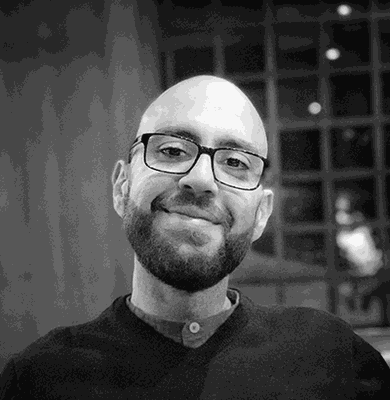A Crisis of Crisis Management? Role and Consequences of International Aid for Lebanon
A MERGE discussion in cooperation with TRANSMIT
Friday 22 October 2021
16:00-18:00 (CEST)
Link to the panel: https://hu-berlin.zoom.us/j/65593336494
Lebanon has witnessed a very intense, devastatingly eventful history in the past few years. Different economic and political-historical processes have contributed to the culmination of overlapping crises in a persistent situation of near collapse the country has been facing. In the TRANSMIT research project, we collected rich survey data on the situation of Syrians and Lebanese in Lebanon in 2019, 2020, and 2021. With the baseline data in Lebanon collected on the eve of the October revolution in 2019, we can document a sharp increase in poverty that has reached alarming levels. The current crisis in Lebanon also gave rise to the discussion on international aid both in academic and public debates. Presenting parts of our findings, we hope to engage our panelists in a discussion on the role and consequences of international aid as a way of crisis management for Lebanon.
Panelists:
|
Jeffrey G. Karam is an Assistant Professor of Political Science at the Lebanese American University and a non-resident research associate at Harvard University's Middle East Initiative. Karam is currently a visiting research fellow with the Global Scholarly Dialogue Programme of the Rosa Luxemburg Stiftung, a EUME Fellow at the Forum Transregionale Studien, and a research affiliate at the Center for Middle Eastern and North African Politics and the Otto-Suhr Institute of Political Sciences at the Freie Universität Berlin. He received his MA in Politics from the American University of Beirut and his PhD in Politics from Brandeis University. He has held postdoctoral fellowships and visiting professorships at Harvard University and Boston University, and is the recipient of several awards. Karam is the editor of The Middle East in 1958: Reimagining a Revolutionary Year (London: I.B. Tauris and Bloomsbury, 2020). His research has been published in academic and public outlets, including Intelligence and National Security, the Arab Studies Journal, The Washington Post, H-Diplo/ISSF, the Daily Star Lebanon, Megaphone, Jadaliyya, TRAFO – Blog for Transregional Research, among others. Karam is currently co-editing a book entitled The Lebanon Uprising of 2019: Voices from the Revolution, which I.B. Tauris and Bloomsbury will publish in 2022.
|
 |
|
Rima Majed is an Assistant Professor of Sociology at the Sociology, Anthropology and Media Studies Department at the American University of Beirut (AUB). Her work focuses on the fields of social inequality, social movements, sectarianism, conflict, and violence. Dr. Majed has completed her PhD at the University of Oxford where she conducted her research on the relationship between structural changes, social mobilization, and sectarianism in Lebanon. She was a visiting fellow at the Mamdouha S. Bobst Center for Peace and Justice at Princeton University in 2018/19, and is currently a visiting fellow at the Finnish Institute in Beirut, Lebanon. Her work has appeared in several journals, books and media platforms such as Social Forces, Mobilization, Routledge Handbook on the Politics of the Middle East, Middle East Law and Governance Journal, Oxford Handbook of the Sociology of the Middle East, Global Dialogue, Idafat: The Arab Journal of Sociology, Al Jumhuriya, OpenDemocracy, Jacobin, Middle East Eye, CNN and Al Jazeera English. She is also the co-editor of the upcoming book The Lebanon Uprising of 2019: Voices from the Revolution (I.B. Tauris), and the Principal Investigator on the “Critical Approaches to Development Studies" project at the American University of Beirut. |
|
|
Lama Karamé is a lawyer and president of the Beirut-based NGO and research center, The Legal Agenda, where she previously directed the Strategic Litigation Department. She is currently a doctoral candidate at the Centre for Socio-Legal Studies at the Faculty of Law, University of Oxford. Her thesis investigates the socio-legal construction of the child in Lebanon, and her research broadly examines the intersection of law and society. She holds an LL.B. in public law from the Saint Joseph University of Beirut and a bachelor’s degree in sociology from the Lebanese University. In 2015, she graduated with an LL.M. in law, culture, and society from SOAS, University of London. Lama was previously a visiting scholar at the Columbia Law School, her research focused on the role of legal professions in promoting social justice.
|
|
|
Walid el Houri is a researcher and journalist based in Berlin. He is Partnerships Editor at openDemocracy and Lead Editor of its North Africa, West Asia section (NAWA). He holds a PhD in Media Studies from the University of Amsterdam and is a former postdoctoral fellow at the Forum Transregionale Studien (EUME) and the Institute for Cultural Inquiry in Berlin. His work and publications deal with protest movements, the politics of failure, and geographies of war and violence. |
|
TRANSMIT's data will be presented by Ramona Rischke. The panel will be moderated by Nader Talebi.




